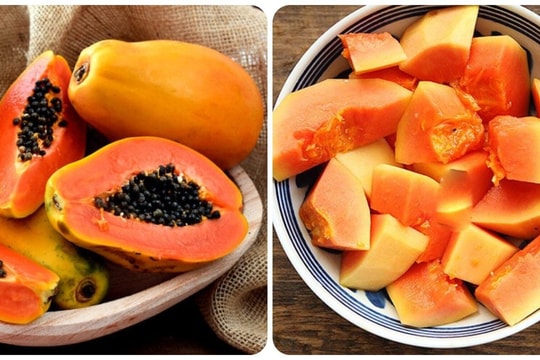Best Diet for Hypothyroidism
Diet plays an important role in hypothyroidism, helping to improve symptoms of the disease, improve quality of life and prevent complications.
1. The importance of diet for people with hypothyroidism
Depending on the underlying cause of hypothyroidism, diet plays an important role in treating and managing hypothyroidism. Eating a balanced diet will keep your thyroid healthy.
Here are some important reasons why people with hypothyroidism need to pay attention to their diet:
Helps balance thyroid hormones:Certain foods support thyroid function and help the body use thyroid hormones more efficiently.
Reduce symptoms of the disease:A healthy diet can help alleviate common symptoms of hypothyroidism such as fatigue, weight gain, constipation, hair loss and dry skin.
Control cholesterol, improve heart health:Hypothyroidism can increase blood cholesterol levels and blood pressure, leading to a higher risk of heart disease. A healthy diet can help control cholesterol, control blood pressure, and reduce the risk of heart disease.
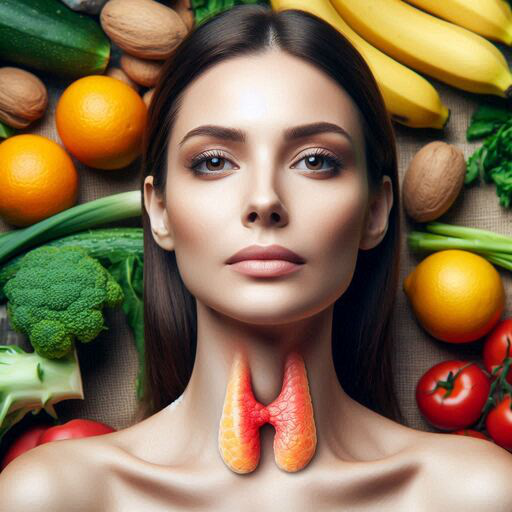
Strengthen the immune system:Hypothyroidism often weakens the immune system. A healthy diet can help boost the immune system and protect the body from disease.
There is no specific food or supplement that you can use to treat a thyroid disorder. A balanced diet is the best way to ensure your body gets all the nutrients it needs.
2. Essential nutrients for people with hypothyroidism
Iodine
Iodine is a trace element needed to stimulate thyroid hormone production and to help convert T4 (inactive thyroid hormone) to T3 (active thyroid hormone). Therefore, it is important to get enough of it in the diet.
Although iodine deficiency is the most common cause of hypothyroidism, in rare cases, too much iodine can be harmful. This is why iodine is a controversial nutrient when it comes to thyroid health and balance is needed to support optimal health.
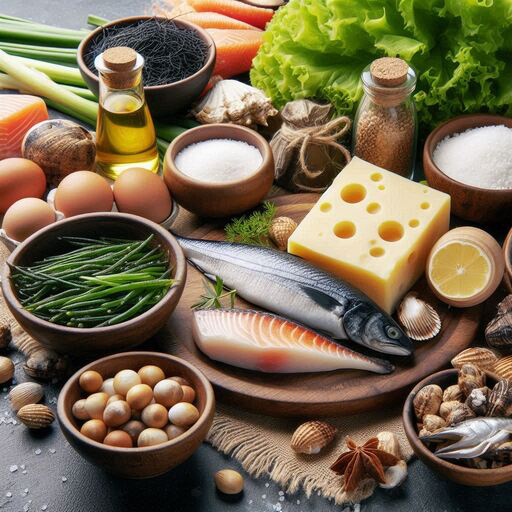
Getting enough iodine in your diet is essential for normal thyroid function. Foods containing iodine include: Sea fish such as cod, tuna, shellfish, seaweed, milk, yogurt, cheese, eggs, iodized salt,...
Iodine supplements can counteract the effects of anti-thyroid medications. If you are taking levothyroxine to treat hypothyroidism or a goiter, iodine supplements are not needed. If you are being treated for hyperthyroidism, iodine supplements are unnecessary and may make the condition worse.
Selen
Selenium is a trace element that is essential for thyroid function. Selenium is also a precursor to one of the body's most important antioxidants, which helps reduce inflammation, which is particularly important for thyroid function.
A large European study showed that 6 months of selenium supplementation had beneficial effects on thyroid disease and was associated with improvements in quality of life in participants. These positive effects persisted after 12 months with no side effects.
Food sources rich in selenium include: seafood, poultry, eggs, milk, yogurt, cheese, cereals,...
Zinc
Zinc is an essential trace element that plays an important role in thyroid health by converting T4 to T3 and producing TSH.
Like selenium, zinc is essential for thyroid hormone activation. Zinc deficiency has been shown to cause hypothyroidism and a reduced metabolism, says Dr. Eitches, a registered dietitian in London.
Good food sources of zinc include: oysters and other shellfish, meat, fish, poultry, beans, nuts, cereals, eggs, dairy products, etc.
Magnesium
Magnesium is important for thyroid hormone balance and production. Very low magnesium levels have been linked to abnormal thyroid function, potentially increasing the risk of hypothyroidism, according to Dr. Lauren Papanos, a registered dietitian specializing in thyroid disorders at Functional Fuel Nutrition (UK).
Foods rich in magnesium include: legumes, nuts, pumpkin seeds, cereals, green leafy vegetables, milk, yogurt, cheese, fortified breakfast cereals,...
Iron
Iron is essential for thyroid hormone metabolism, and iron deficiency can impair this process, says Dr. Eitches.
You can get enough iron by eating foods such as: lean meat, poultry or seafood, fortified breads, breakfast cereals, peanuts, peas, spinach, nuts, dried fruits, such as raisins.
Vitamin B12
People with hypothyroidism are more likely to be deficient in vitamin B12, a nutrient important for blood, nerve health, and energy production, according to Dr. Eitches. Vitamin B12 helps the body make red blood cells and keeps the nervous system healthy. It also helps the body release energy from food and use folate.
Dietary sources of vitamin B12 include: seafood, especially oysters and clams, poultry, pork, organ meats such as pork liver, beef liver, eggs, milk, yogurt, cheese,...
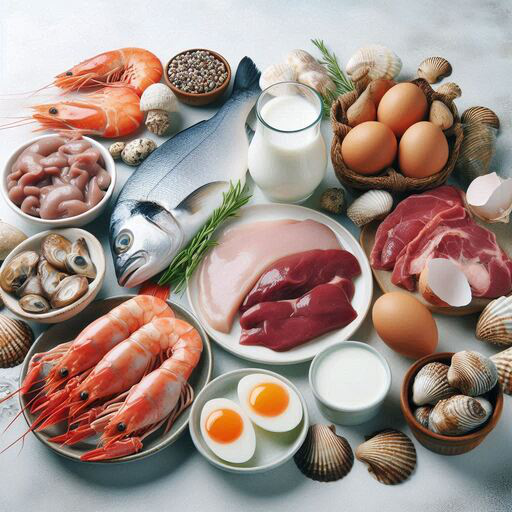
Vitamin D
Vitamin D helps regulate calcium absorption, which is necessary for healthy bones, teeth, and muscles. A large number of previous studies have investigated whether vitamin D is related to thyroid disorders. Many studies have found that low vitamin D levels are correlated with thyroid autoantibodies and possibly even features of thyroid cancer.
Foods that help supplement vitamin D: fatty fish such as salmon, tuna, mackerel, cod liver oil, beef liver, egg yolks, cheese, mushrooms, fortified breakfast cereals and orange juice,...
The above nutrients are important for thyroid health. Nutritional testing can be used to better determine which nutrients may be imbalanced. Nutritional testing is particularly useful for clinicians to assess specific thyroid nutrients and allows for a broader approach to a patient’s overall nutritional needs.
3. Dietary recommendations for hypothyroidism
According to MSc. Dr. Nguyen Xuan Tuan, majoring in Oncology, Lecturer at the University of Medicine and Pharmacy - Hanoi National University, patients after surgery to remove part or all of the thyroid gland should apply some safe weight loss methods proven by science such as: Regular use of thyroid hormones, regular exercise, need to monitor daily calorie intake, supplement enough protein...
Patients should consult a doctor about the amount of calories needed. Try to eliminate processed foods, fast foods or anything high in calories but low in nutrients from the menu. Protein supplements help limit hunger, support muscle growth, combined with exercise will help the metabolism process take place more effectively.
In general, nutrition experts recommend that the best diet for people with hypothyroidism should include plenty of fruits and vegetables, good quality protein, healthy fats, and a moderate amount of healthy carbohydrates.
However, it is important to remember that a personalized approach is always best as it takes into account an individual’s overall health, immunity, gut health, nutrient deficiencies, toxic exposures, and many other lifestyle factors. People with hypothyroidism should consult a doctor or nutritionist for advice on the diet and dosage of vitamins and minerals that are best suited to their health condition.
4. Foods to avoid or limit when suffering from hypothyroidism
Foods Containing Goitrogens
Goitrogens are compounds that interfere with the body's absorption of iodine, negatively affecting thyroid function. Some foods that contain goitrogens include cabbage, cauliflower, Brussels sprouts, soybeans, and spinach. However, consumption levels would need to be very high for this to be a real concern. Under normal dietary conditions, this is usually not a problem and the risk is very low. People with hypothyroidism do not need to completely eliminate these foods from their diet, but should limit them.
Kelp
People with hypothyroidism should avoid products like kelp as they can affect the function and health of their thyroid gland. Kelp supplements are derived from seaweed and are naturally high in iodine, which is not healthy for people with thyroid disease.
Soybeans
Soy isoflavones inhibit the enzyme thyroid peroxidase (TPO) which plays a key role in thyroid hormone synthesis and they also interfere with thyroid hormone production.
Soybeans interfere with the absorption of levothyroxine, so patients taking levothyroxine for hypothyroidism should try to avoid soy. If soy is used, patients should keep at least 4 hours between eating soy and taking levothyroxine.
Calcium
Some calcium-rich foods and supplements interfere with the absorption of levothyroxine. A 4-hour gap between the two is sufficient to ensure that there is no significant impact on thyroxine blood levels.
Foods containing gluten
Foods containing gluten include wheat, cereals, candies, sauces... which can have a negative impact on hypothyroidism. People with thyroid disease should limit these foods and the best way is to look at the packaging to determine the lutein content in the product.
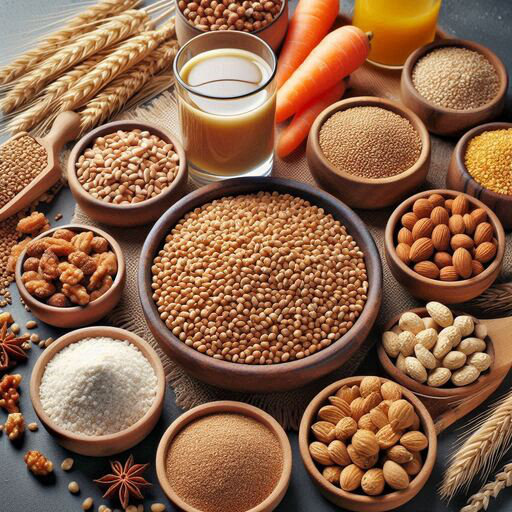
Processed foods
Processed foods and sugar create hormonal imbalances, increase inflammation, and prevent gut and thyroid healing, so when you have thyroid disease, you should avoid all processed foods.
Beverages containing alcohol and caffeine
Alcoholic and caffeinated beverages cause the body of people with hypothyroidism to reduce thyroid hormone production, making the disease worse.
If you have hypothyroidism, thyroid hormone replacement medication should be taken under the guidance of a healthcare professional. It is usually taken on an empty stomach. Too much fiber in your diet can prevent your body from absorbing the medication. Some foods, supplements, and medications can have the same effect.
It is important to note that the use of vitamins and minerals (supplements) may affect thyroid function or thyroid blood test results. Therefore, patients should seek appropriate advice from their doctor or pharmacist before taking any supplements or vitamins./.

